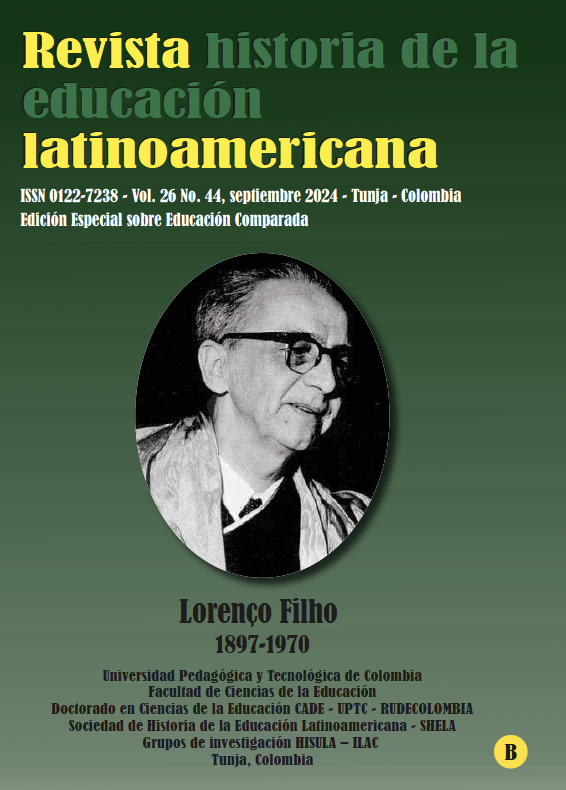For a comparative history of adult and youth education: aAdefense in light of Saviani's proposal

Abstract
Objective: This text aims to promote discussion around a more comprehensive and critical approach to the history of education, emphasizing Comparative History as a key methodology for in-depth study of the structures and systems that shape the educational field, even within the postmodern context.
Originality/Contribution: Is to enrich and diversify academic discourse, providing a more complete and multifaceted understanding of the history of education and its implications for the present and future, beyond the prevailing status quo in historical methodologies. adopted in the last years, by major academic centers in the country.
Method:/ Strategy/Data Collection: While personal histories are important for capturing diverse experiences and perspectives, it is equally crucial to situate them within a broader historical context to fully understand their meaning and impact.
Conclusions: This is the argument that will be defended here, within a comparative context. We believe that this approach is particularly relevant in Adult and Youth Education (AYE). Such methodologies are essential in this field because study proposals must offer solutions aligned with the challenges faced. Reflecting on AYE in Latin America and Brazil goes beyond mere academic research; it is also necessary to formulate solutions and implement effective policies in the area. In this context, research methodologies play a crucial role, as they not only contribute to academic knowledge but also serve as tools for structurally analyzing reality.
Keywords
Comparative history of education, adult and youth education, history of education, methodology
Author Biography
Vinícius Figueiredo Costa
Mestre em Educação pela UFMG, Técnico em Assuntos Educacionais -pedagogo do CEFET-MG, membro do GEPEJAI – Grupo de Estudos e Pesquisa em Educação de Jovens, Adultos e Idosos, da Universidade Federal de Ouro Preto.
Regina Magna Bonifácio de Araújo
Doutora em Educação pela UNICAMP, coordenadora do GEPEJAI – Grupo de Estudos e Pesquisa em Educação de Jovens, Adultos e Idosos, da Universidade Federal de Ouro Preto, regina.araujo@ufop.edu.br
References
- Barros, José D’Assunção. “História comparada – um novo modo de ver e fazer a história”. Revista de História Comparada 1, n.° 1 (2007): 2.
- Certeau, Michel de. A. Escrita da história/Michel de Certeau; tradução de Maria de Lourdes Menezes;*revisão técnica [de] Arno Vogel. Rio de Janeiro: Forense Universitária, 1982.
- Chartier, Roger. A História Cultural ⎯ entre práticas e representações. Lisboa: DIFEL, 1990.
- Ginzburg, Carlo. The Cheese and the Worms. Traduzido por John and Anne Tedeschi. Baltimore: Johns Hopkins University Press, 1980, primeiramente publicado em italiano, em 1976. Todas as referências são a essa edição. N.T.: Salvo indicado, utilizamos a edição brasileira para as citações: O queijo e os vermes, tradução de Maria Betânia Amoroso. São Paulo: Companhia das Letras, 2006.
- Julien, Marc-Antoine. Esquisse et vues préliminaires d'un ouvrage sur l'éducation comparée. Paris: L. Colas, 1817.
- Kocka, Jürgen. “Comparação e Além”. History and Theory, n.° 42 (2003). Tradução de Maria Elisa da Cunha Bustamante
- Lyotard, Jean François. A condição pós-moderna. Rio de Janeiro: José Olympio, 2013.
- Plutarco. Vidas Paralelas. Porto Alegre: LPM, 2005.
- Sartre, Jean Paul. O ser e o nada – ensaio de ontologia fenomenológica. Petrópolis: Vozes, 1997.
- Saviani, Demerval. História Comparada da Educação: algumas aproximações. História da Educação 5, n.° 10 (2016).
